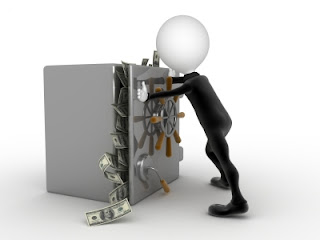Chapter 7 bankruptcy, also known as "liquidation" bankruptcy, offers several benefits for individuals facing overwhelming debt:
Debt Discharge: One of the primary benefits is that it allows for the discharge of most unsecured debts. This means debts like credit card balances, medical bills, personal loans, and utility bills can be wiped out, giving the filer a fresh start.
Automatic Stay: Filing for Chapter 7 initiates an automatic stay, which halts most collection actions by creditors. This means creditors must stop wage garnishments and debt collection lawsuits. Foreclosure proceedings and repossession efforts will be stopped temporarily by the automatic stay. The Debtor will need to catch up the mortgage or auto payments to cure the loan in order to keep the property with a secured interest (lien) against it.
Speed: Chapter 7 bankruptcy typically moves swiftly compared to other bankruptcy options. The process usually takes around two to six months to complete, providing a relatively quick resolution to overwhelming debt.
No Repayment Plan: Unlike Chapter 13 bankruptcy, which requires the filer to create a repayment plan to pay off debts over several years, Chapter 7 doesn't involve a repayment plan. Instead, non-exempt assets are sold to pay off creditors, and remaining eligible debts are discharged.
Fresh Financial Start: Chapter 7 bankruptcy allows individuals to obtain a fresh financial start by eliminating burdensome debts and giving them the opportunity to rebuild their credit and finances without the weight of past debts.
Exemption Protections: In Pennsylvania many assets may be protected from liquidation under exemption laws. This means you may be able to keep essential assets like your home, car, and personal belongings.
Legal Protection: Once debts are discharged through Chapter 7 bankruptcy, creditors are legally barred from attempting to collect on those debts in the future. This provides peace of mind and protection from persistent creditor harassment.
However, it's essential to consider the potential drawbacks and eligibility requirements of Chapter 7 bankruptcy as well such as:
1. the impact on credit scores; however, by the time a person is considering bankruptcy, his/her credit score has been impacted or is on the verge of being impacted by late payments.
2. the potential loss of non-exempt assets; however, the exemptions in PA cover many assets needed by people to have a successful fresh start.
3. the inability to discharge certain types of debts like student loans and recent taxes; however, eliminating unsecure debt can help free up income to make payments on these non-dischargeable debts.
Consulting with a bankruptcy attorney can help people fully understand their options and make informed decisions about their financial future.


